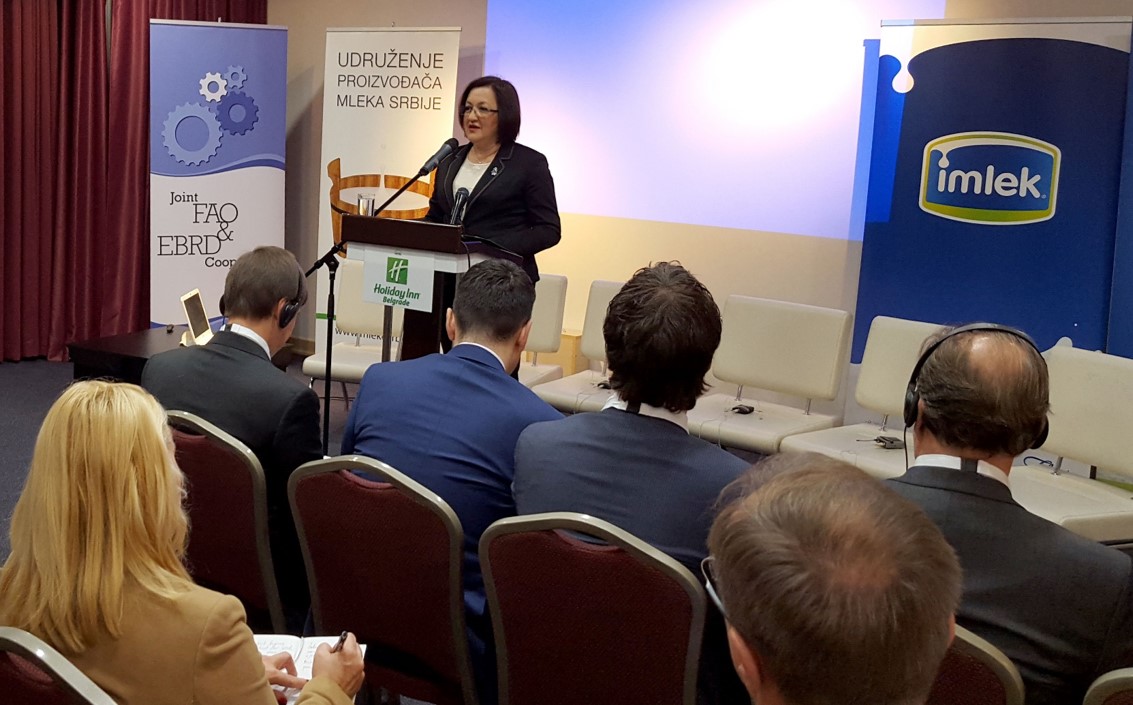Inaugural Serbian Dairy Congress launches in Belgrade

The Serbian Dairy Congress has come to a successful close. On 5-6 November, Belgrade hosted nearly 150 public and private sector participants ranging from policymakers to dairy farmers, processors and retailers to raise policy issues and share practical improvements to help the dairy industry prepare better for the challenges related to EU accession. While milk production is stable, the number of dairy farmers in Serbia has been declining and milk quality remains a bottleneck. To stay competitive and increase its international presence, the Serbian dairy sector will need to meet higher quality and safety standards while increasing production.
This Serbian Dairy Congress comes at a crossroads moment in the sector’s development, including accession to the World Trade Organization (WTO) and the EU. The first day of the Congress, opened by the Serbian Minister for Agriculture and Environmental Protection, took stock of recent developments and major policy issues such as alignment of domestic legislation with the EU, future direction of state support, and the potential use of EU pre-accession funds. The second day was devoted to practical trainings of farmers on various aspects of dairy feeding, nutrition and milk production management.
“The foundation of the Serbian Dairy Congress is a great opportunity for all of us involved in the dairy business to meet and discuss major challenges in the sector and the way forward,” said Slobodan Ilic, a dairy farmer who is involved in policy dialogue activities. “The Congress ensures that the voice of dairy producers will be heard by both those who are creating policy in the sector and the processing industry.”
Dairy is Serbia’s most important agricultural subsector and it boasts a long tradition and favorable farming conditions. However, milk production has been flat due to limited purchasing power and export possibilities. Relatively low milk quality -- only 40 percent of milk sold meets EU requirements -- makes further industry growth challenging. This is why the FAO’s Investment Centre and the European Bank of Reconstruction and Development (EBRD), together with the Association of Milk Producers of Serbia and the Ministry, decided to jointly support the organization of the Congress to further promote public-private dialogue on sector issues.
“Serbia’s possible accession to the EU means that it has to focus on meeting international quality and safety standards to improve competitiveness,” remarked Miljan Zdrale, Head of Agribusiness in Southeast Europe and the Balkans for the EBRD, “This means focusing on bottlenecks, enabling investment in the sector, and bringing private sector voices to the policy discussion.”
“Average dairy herd size in Serbia is just 1.9 cows, which means that smallholder farmers and commercial producers will have to be part of the solution together,” added Dmitry Prikhodko, Economist in FAO’s Investment Centre Division.
The Congress closed with a commitment to maintain open communication between the public and private sectors through the working groups and by making the conference an annual event. The agreed priorities moving forward included training on crisis communication in food safety-related issues, continuation of export promotion, and ongoing support to cooperative law development and implementation.
